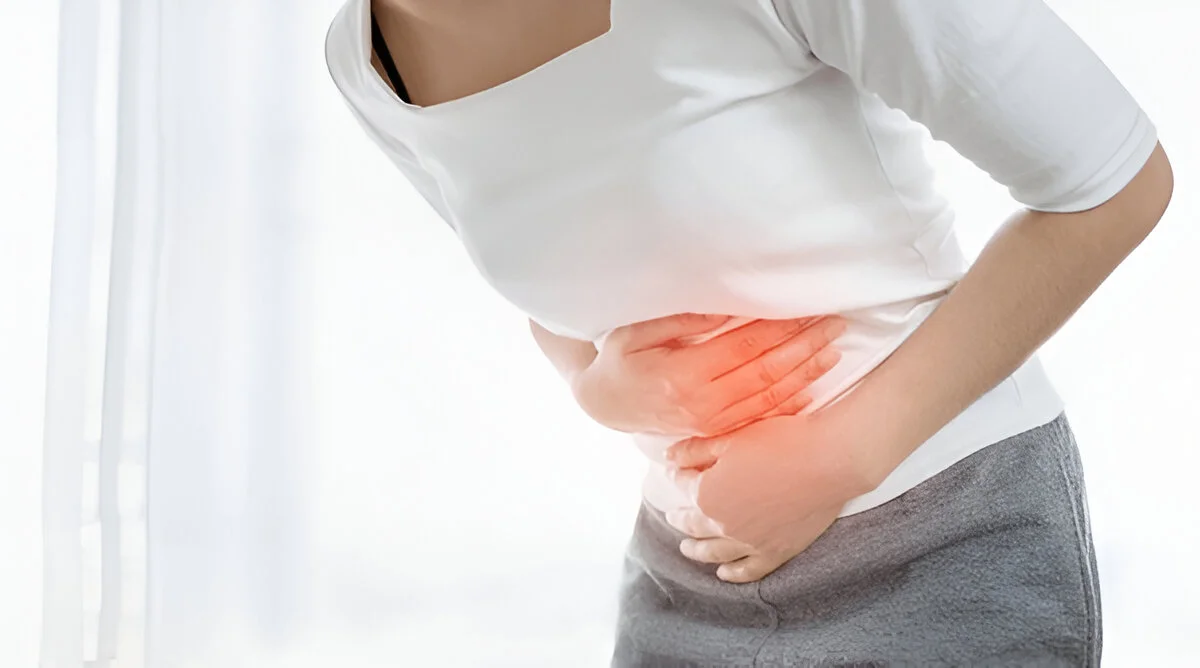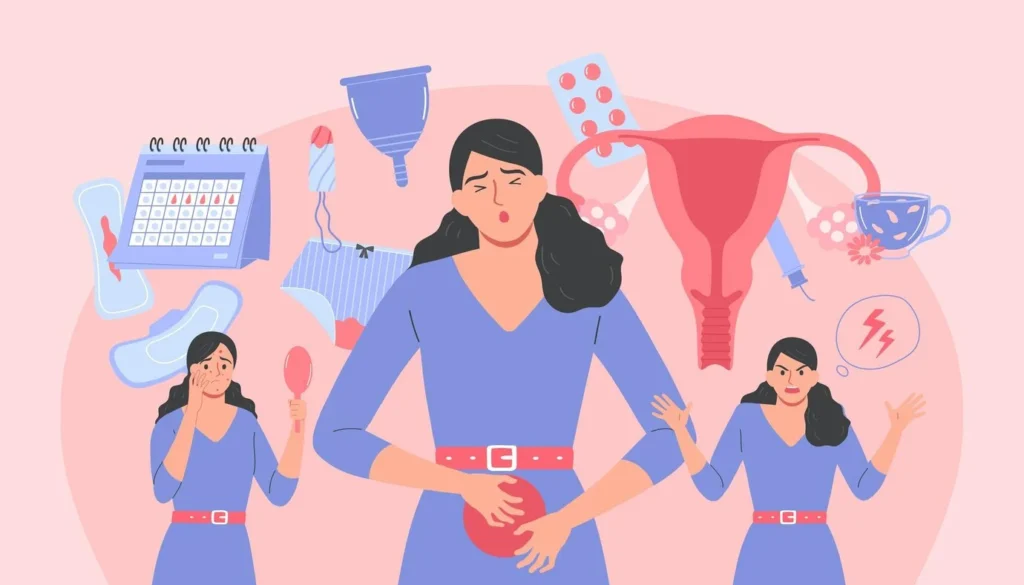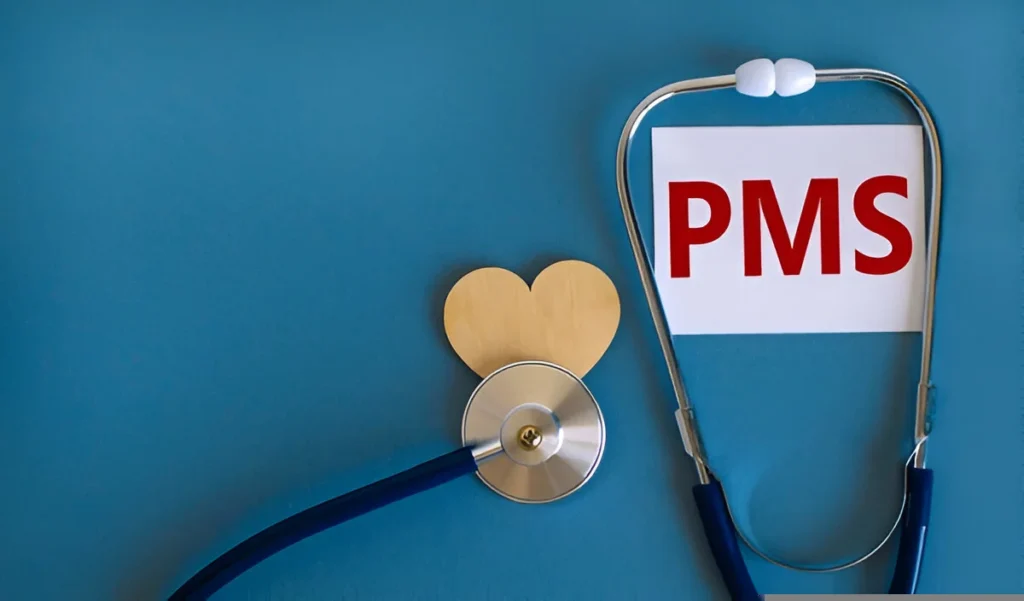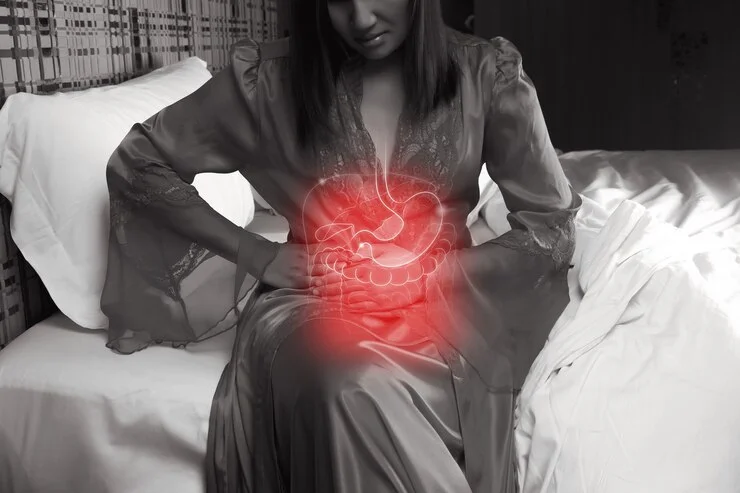-
Ganesh Talkies, Kolkata
Ganesh Talkies, Kolkata

Looking for tips on managing Premenstrual Syndrome? Explore effective strategies for PMS relief and learn from a reputed gynecologist for expert guidance.
Premenstrual Syndrome (PMS) affects many women worldwide, with symptoms ranging from mild discomfort to severe distress. While PMS is a natural part of the menstrual cycle, its impact on daily life can be significant. Fortunately, understanding the condition and adopting effective management strategies can help ease the discomfort. In this article, we’ll discuss essential tips for managing PMS, including practical advice on lifestyle changes, nutrition, and self-care.
By the end, you’ll have a clear understanding of how to alleviate PMS symptoms and improve your quality of life during this phase of your cycle.

Premenstrual Syndrome (PMS) refers to a variety of physical, emotional, and behavioral symptoms that occur in the luteal phase of the menstrual cycle, typically one to two weeks before menstruation begins. These symptoms can vary greatly in intensity, from mild irritability to severe fatigue, cramps, and even mood swings.
While PMS is common, it is often misunderstood. It’s crucial to note that PMS is not a disease but a combination of symptoms influenced by hormonal fluctuations. Understanding these symptoms and how to manage them effectively can significantly improve your well-being.
Symptoms of Premenstrual Syndrome (PMS) can be grouped into three main categories: physical, emotional, and behavioral. These symptoms usually subside once menstruation begins. However, they can significantly affect a woman’s daily activities.

Managing PMS effectively often requires a holistic approach that combines lifestyle changes, dietary adjustments, and self-care practices. Here are some essential tips for managing the condition:
What you eat can significantly influence your PMS symptoms. Making simple changes to your diet can help alleviate discomfort and promote overall well-being.
Exercise plays a crucial role in managing PMS symptoms. It not only boosts mood but also helps regulate hormones and reduce cramps.
Aim for at least 30 minutes of moderate exercise, three to five times a week, to experience the full benefits.
Since PMS is often associated with heightened emotional symptoms such as stress and anxiety, it’s crucial to incorporate stress-relieving techniques into your routine.
Sleep is essential for emotional and physical health. During PMS, fatigue and hormonal changes can make sleep more difficult to attain. However, proper rest can significantly alleviate PMS symptoms.
Aim for 7-9 hours of quality sleep each night to help manage symptoms effectively.
Certain herbal supplements and vitamins may provide relief from PMS symptoms. However, it’s important to consult with a healthcare professional before starting any new supplements.

PMS is primarily caused by hormonal fluctuations that occur before menstruation. These hormonal changes can affect mood, energy levels, and physical well-being.
Yes! Incorporating a balanced diet, regular exercise, stress management techniques, and adequate sleep can significantly reduce the severity of PMS symptoms.
If your PMS symptoms are severe and interfere with your daily life, it’s important to consult a healthcare provider to discuss treatment options.
Yes, over-the-counter pain relievers, hormonal treatments, and antidepressants may be prescribed in severe cases of PMS. Always consult with a healthcare provider before starting medication.
Premenstrual Syndrome (PMS) can be challenging to deal with, but with the right approach, its symptoms can be managed effectively. By focusing on lifestyle changes, a healthy diet, regular exercise, and stress management techniques, you can ease the discomfort and improve your emotional well-being.
Understanding your body and how it responds to hormonal changes is key to managing PMS and maintaining your quality of life. If you are looking for personalized advice or support, seeking guidance from an experienced healthcare professional can make all the difference.